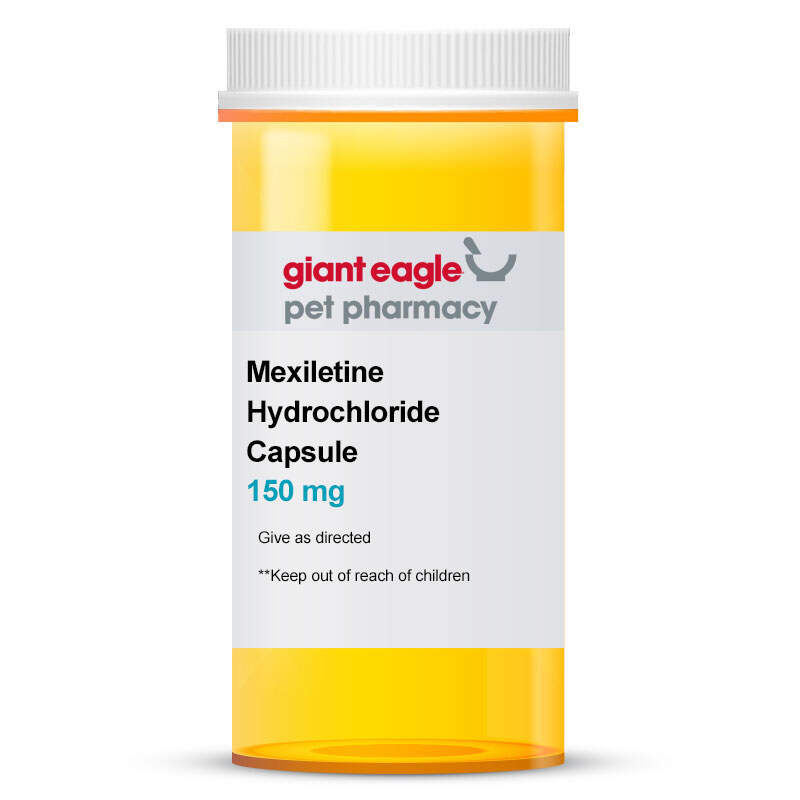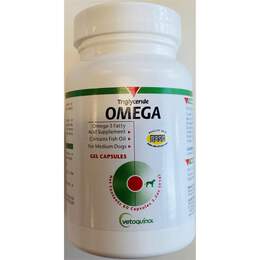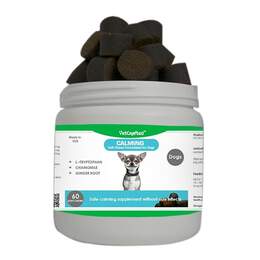Per Capsule
Click on image to open expanded view
Item No.
49895
Product Description
Ventricular arrhythmia is treated with mexiletine. It's a sodium channel blocker in the class 1B that works as an antiarrhythmic.
Who is Mexiletine Hydrochloride Capsule for?
Dogs.
Why use Mexiletine Hydrochloride Capsule?
This medicine serves to treat PVCs, ventricular tachycardia, and ventricular arrhythmias. It has a lidocaine-like formulation and an 85 percent favorable outcome rate. When monotherapy is ineffective, it might be used with atenolol or sotalol. Furthermore, it can be utilized as part of the treatment for hereditary or dilated cardiomyopathy in Boxers and Doberman pinschers.
How does Mexiletine Hydrochloride Capsule work?
When used orally, this medication is well absorbed, with a bioavailability of 5%. It is absorbed, processed by the liver to 10%, and then excreted through the urine and feces. Animals who have had an acute myocardial infarction, hepatic dysfunction, severe renal illness, or reduced cardiac output will experience a longer half-life.
Manufacturer:
Teva
Active Ingredients(s):
Mexiletine Hydrochloride (mexiletine)
How is Mexiletine Hydrochloride Capsule sold?
Sold by the capsule in strengths of 150mg, 200mg, and 250mg.
What are the side effects of Mexiletine Hydrochloride Capsule?
Most commonly, gastrointestinal effects have been reported with the use of this medication. Such responses could include vomiting or nausea. These symptoms usually resolve when the medication is administered in conjunction with food. Other potential adverse responses are central nervous system-related, including chest pain, PVCs, other cardiac signs, shortness of breath, trembling, imbalance, or dizziness.
What special precautions are there?
Administer cautiously to animals with third or second degree AV heart block, abnormal intraventricular conduction, abnormal sinus node function, cardiogenic shock, congestive heart failure, myocardial infarction, liver dysfunction, hypotension, or a seizure disorder. Keep out of the reach of children.
What to do if overdose?
Mexiletine overdose is associated with high toxicity risk. Human literature reports that cardiovascular signs follow central nervous system signs. Experiments in dogs showed a four-fold risk of central nervous system overdose symptoms within 10 minutes post-administration (with oral dosing). If signs are noticed quickly, gastrointestinal emptying should take place immediately alongside supportive care and urinary acidification.
How can I store Mexiletine Hydrochloride Capsule?
Keep product stored in a dry and cool environment.
Helpful Tips:
Use only according to your vet's instructions.
Overview
Use as prescribed by your veterinarian.
Main Ingredients
Active Ingredients: Mexiletine Hydrochloride (mexiletine) Inactive Ingredients: Silicon Dioxide Magnesium Sterate Starch, Corn FD&C Yellow No. 6 Gelatin Titanium Dioxide D&C Red No. 28 FD&C Blue No. 1 Ammonia Ferrosoferric Oxide D&C Yellow No. 10 Alcohol FD&C Blue No. 2 FD&C Red No. 40 Isopropyl Alcohol Butyl Alcohol Propylene Glycol Shellac







